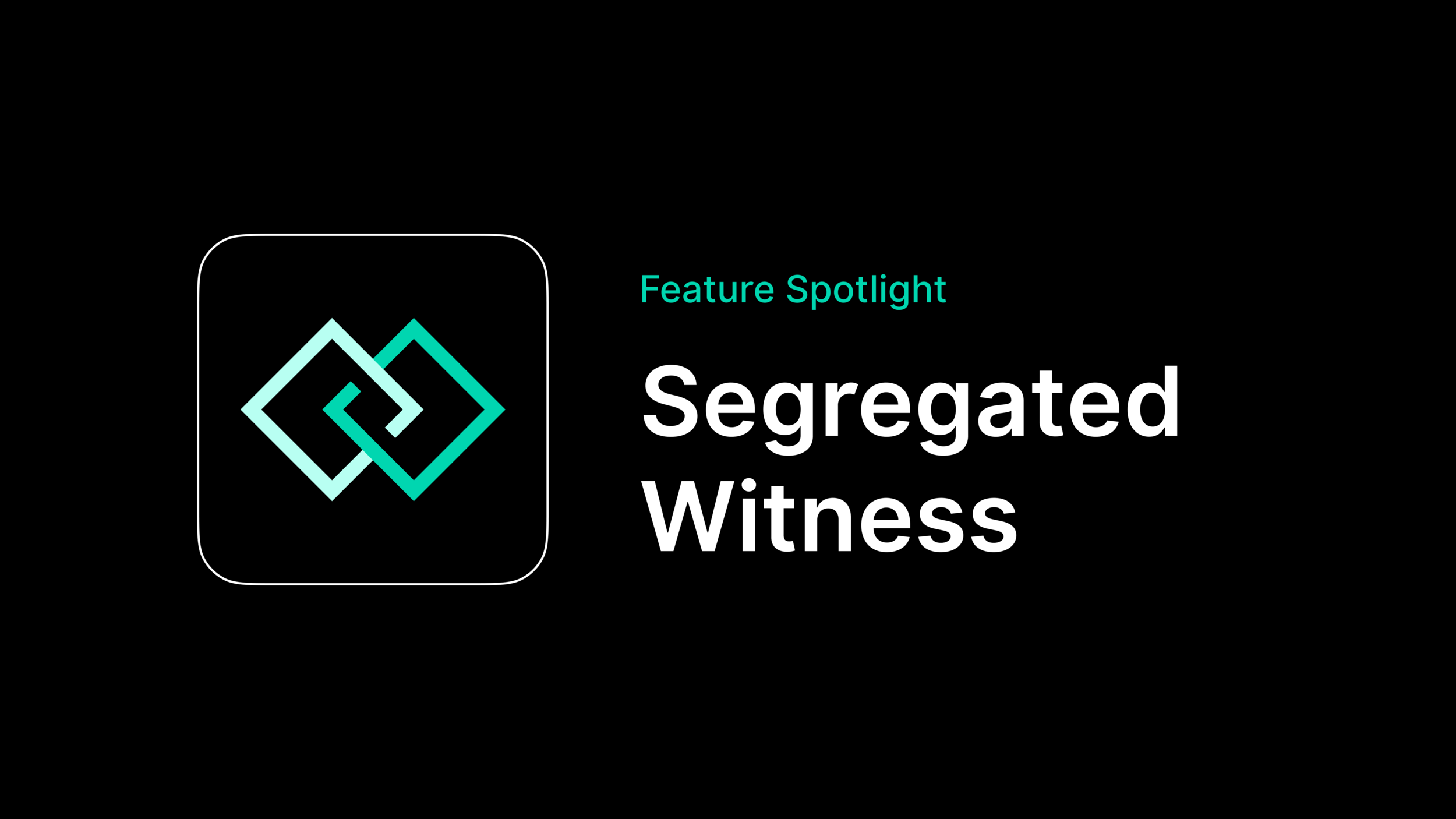How SegWit Can Ease Your Transaction Pain.
In our last article, we talked about transaction batching and how you can choose your fees depending on how fast you want your transactions to go through. Fees are definitely a decisive factor of the transaction process, but today there are more solutions that have been developed to ease the transaction process for those who want to save some time. When creating your hot wallet you will be given the choice to either generate a Legacy, SegWit, or Native SegWit address, and these are mainly different based on their transaction sizes. How, you might wonder. That’s what we will explain to you in this article.
The time for transactions to go through has been considered one of Bitcoin’s most discussed flaws. If you wish to have your transaction go through quickly you’ll have to pay higher fees. Nevertheless, SegWit came with another solution to these scaling problems. The name SegWit stands for Segregated Witness and is a process where signature data is removed from the transaction data which makes it possible to add more transactions into one block.
Choose between SegWit, Legacy or Bech32 address.
So how does this work more specifically? Transaction data consist of two components; input, which is the public address of the sender, and output, which is the public address of the receiver. In the input data there is a so called signature, which verifies that the sender has the required funds for the transaction. The problem, however, is that this signature takes up the majority of the space in the transaction. With more and more Bitcoin transactions being made, more blocks must be added to the blockchain as the block size limit is only 1 MB which means that only a certain amount of transactions can be included in one block. Naturally, this limitation is slowing down the network as the weight of the transactions that are piling up causes delays in the process.
What SegWit does is that it separates the signature from the input data, and instead moves it to a structure at the end of the transaction. By removing the signature data, it is possible to fit transactions that would normally take up 4 MB into one 1 MB block. So, the segregated witness does not increase the block size, but makes room for more transactions in one block. By making a transaction smaller, the transaction fee is naturally also reduced. Furthermore, SegWit also prevents the risk of the receiver modifying the sender’s transaction ID since it cannot be changed when detached from the input. Therefore, with a SegWit address you can reduce the risk of getting rid of more coins than what you originally sent.
By making transactions smaller, SegWit & Bech32 can also reduce your fees!
Along with implementing SegWit, we also developed the wallet so that it would be able to generate Bech32 addresses. Bech32 is natively SegWit compatible and is human-friendly in a sense that it only consists of lower cases which practically makes it easier to write down or to read out loud. Compared to the Base58 addresses, Bech32 also provides advantages such as smaller QR codes, that it enables auto completion, and has higher protection against typing errors. That it is natively SegWit compatible also means that a transaction does not need extra space to put SegWit in the P2SH address. So, Bech32 is also a way to reduce the transaction size and hence, the transaction fees.
In our previous articles about the COINiD features, you can find some recurrent attributes that are the underlying reason for several of our features. Security and not spending extra money are some of these. SegWit gives you security as it protects the sender’s transaction ID, and it helps you save time and money by decreasing the size of your transactions. Therefore, it made a lot of sense that we would offer our users the benefits of SegWit and Bech32 addresses. Something extra to enhance the meaning and experience of the COINiD wallet.







